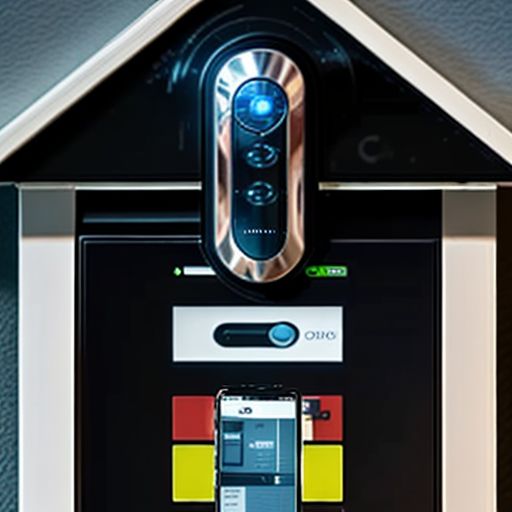Imagine this: you’re away on a relaxing vacation, but the tranquility is shattered by a nagging worry about your home’s safety. Choosing the right home security system can provide much-needed peace of mind, allowing you to truly enjoy your time away. But with so many options available, Comparing Home Security Systems can feel overwhelming.
This comprehensive guide will equip you with the knowledge to confidently navigate the world of home security, understand key factors to consider, and choose the system that best suits your individual needs and budget.
Understanding Your Home Security Needs
Before diving into the specifics of various systems, it’s crucial to first assess your unique requirements.
What are your priorities?
- Deterring crime: A visible security system can be a powerful deterrent to potential burglars.
- Remote monitoring: Receive real-time alerts and monitor your home from anywhere using your smartphone.
- Environmental monitoring: Detect potential hazards like fire, smoke, or carbon monoxide leaks.
- Home automation: Integrate your security system with other smart home devices for enhanced control and convenience.
What type of property are you protecting?
- Apartment: Wireless, DIY systems are often suitable for smaller spaces.
- Single-family home: Wired systems or hybrid options offering both wired and wireless components might be more appropriate.
- Large property: Consider systems with cellular backup, extended Wi-Fi range, and outdoor security cameras with night vision.
security.yougaming.xyz/wp-content/uploads/2024/07/home-security-systems-comparison-66922d.jpg" alt="Home Security Systems Comparison" width="512" height="512">Home Security Systems Comparison
Key Factors to Compare When Choosing a Home Security System
1. Professional Monitoring vs. Self-Monitoring
- Professional monitoring: A professional monitoring center receives alerts from your system and contacts emergency services if necessary.
- Pros: 24/7 protection, faster response times, added peace of mind.
- Cons: Monthly fees, potential for false alarms.
- Self-monitoring: You receive alerts directly on your phone and are responsible for contacting authorities if needed.
- Pros: No monthly fees, more control over your system.
- Cons: Slower response times, reliance on your own judgment during an event.
2. Equipment and Features
- Control panel: The central hub of your system, managing sensors, alarms, and communication.
- Sensors: Door and window sensors, motion detectors, glass break sensors, and more, designed to detect intrusions.
- Cameras: Indoor, outdoor, and doorbell cameras offer visual verification of events and deter potential intruders.
- Alarm siren: A loud siren to scare off intruders and alert neighbors.
- Smart home integration: Connect your system with other smart devices for enhanced control and automation.
3. Installation
- DIY installation: Affordable and convenient, with wireless systems often being easy to set up yourself.
- Professional installation: Recommended for wired systems, ensuring proper wiring and optimal sensor placement.
4. Contract and Pricing
- Contract length: Carefully review contract terms, especially cancellation fees and automatic renewals.
- Monthly fees: Factor in the cost of professional monitoring, equipment rentals, and any additional features.
- Upfront costs: Consider the initial investment in equipment, installation, and activation fees.
Research and Read Reviews
Once you have a clear understanding of your needs and the key features to compare, take the time to research different home security providers.
- Read online reviews: Gain insights from other customers’ experiences with different companies and systems.
- Compare quotes: Request quotes from multiple providers to compare pricing and contract terms.
- Ask for recommendations: Reach out to friends, family, or neighbors who have home security systems for their recommendations.
Making the Right Choice for Your Peace of Mind
Choosing the right home security system is an investment in your peace of mind and the safety of your loved ones. By carefully considering your needs, comparing key features, and conducting thorough research, you can find a system that provides comprehensive protection and seamlessly integrates into your lifestyle.
